
Debate Linguistics Reveals the Politics at Play in the 2024 Election
Linguist and sociophonetician Nicole Holliday analyzes the language used by candidates in the recent presidential and vice presidential debates
Kelso Harper is an award-winning multimedia editor at Scientific American. As a producer, editor and host, they work on short documentaries, social videos and Scientific American's podcast Science Quickly. They have a bachelor's in chemistry from Johns Hopkins University and a master's in science writing from MIT. Previously, they worked with WIRED, Science, Popular Mechanics, and MIT News. Follow them on LinkedIn and Instagram.

Debate Linguistics Reveals the Politics at Play in the 2024 Election
Linguist and sociophonetician Nicole Holliday analyzes the language used by candidates in the recent presidential and vice presidential debates
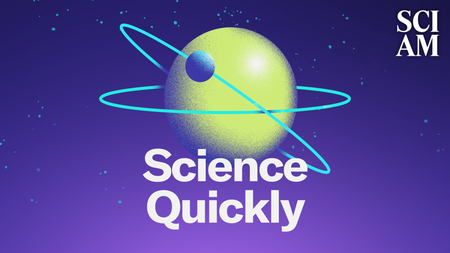
See the Skies Differently with Astronaut and Photographer Matthew Dominick
NASA flight engineer Matthew Dominick’s astrophotography helps us see our world—from space
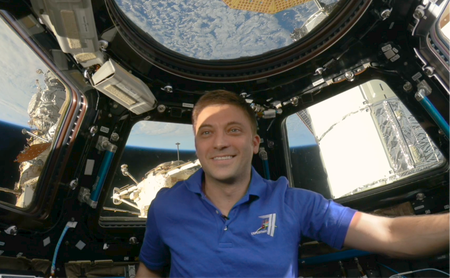
Watch the First-Ever Interview from the ISS Cupola
NASA astronaut Matthew Dominick speaks with Science Quickly host Rachel Feltman about how he captures jaw-dropping images from space
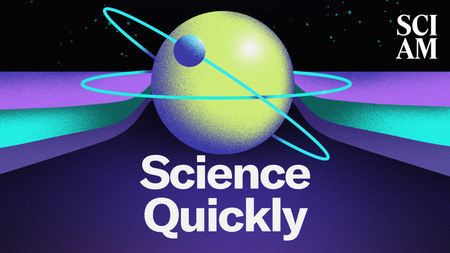
NASA’s Perseverance Rover Ascends, Ozempic Is Linked to Depression, and Mpox Cases Spread Rapidly
We cover Mars mission updates, a new brain implant that shows promise for Parkinson’s, the latest on the mpox outbreak, and more in this week’s new roundup.

What a Linguist Hears when Kamala Harris Speaks
A sociophonetician explains presidential candidate Kamala Harris’s intonational patterns and the way that the properties of candidates’ speech influences how they are perceived.

A Survey of 16,000 Changes the Story of Prostates and Pleasure
Here’s what the team at Science Vs learned about prostates and pleasure in its quest to understand the “male G-spot.”
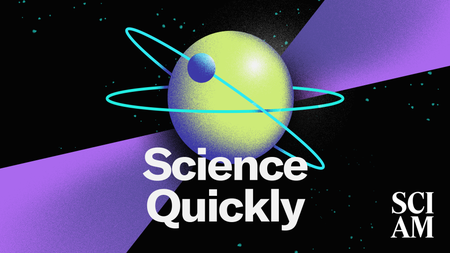
A Close Encounter with SpaceX Debris Teaches an Astronomer about Space Junk
The space junk polluting low-Earth orbit sometimes makes its way to Earth. Here’s how one astronomer responded when SpaceX debris fell on a nearby farm.

Olympic Athletes Swim the Murky Seine, and Astronauts Are Stuck on the Space Station
We cover the science stories of the Olympics, concerns about artificial sweeteners and a new theory of how the pyramids were built in this week’s news roundup.
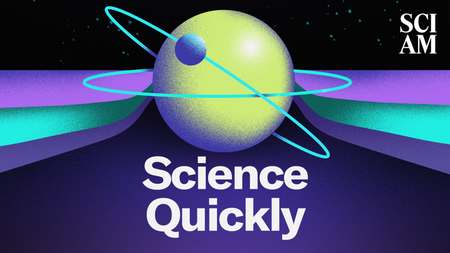
Scientists Sound Alarms on New Surge in Cancers, and a Private Spacewalk Is Pushed Back
A new blood test for cancer, helpful cat parasites and a new kind of wood are featured in this week’s news roundup.

How Ancient Humans Interpreted the Cosmos
Archaeoastronomers piece together how people understood the heavens thousands of years ago.

Sustainable Fishing with Ancient Chambers and Ocean Tides
A group on the islands of Penghu is restoring ancient fishing weirs, hoping to preserve the sustainable fishing practice and attract ecotourism.

Cleaning Up Paris’s Poop River for the Olympics
The Seine will be the stage for the Paris 2024 Olympics’ Opening Ceremony—and for its marathon swimming events. But this urban waterway is challenging to keep clean.
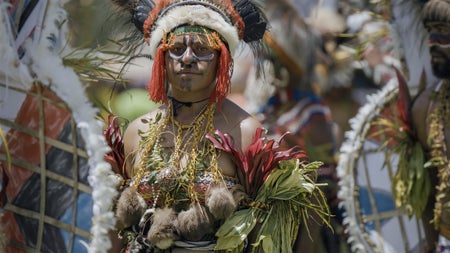
How Science Can Defeat Witchcraft Fears in Papua New Guinea
Belief in witchcraft and sorcery is deeply rooted in Papua New Guinea's culture and history, but it can lead to violence, particularly against women. Local public health experts are working to end this violence through education.

Penguins and Ice Samples Make This Research Vessel Paradice
To unravel the effects of melting sea ice, researchers drill the frozen waters around Antarctica and receive a surprise visit from a group of penguins.

There’s No Need to Panic over ‘Flying’ Spiders, and Satellites Are Not So Great for the Ozone Layer
Sweltering heat in Greece, ozone-damaging chemicals on the decline and an investigation of what space does to our body are all in this week’s news roundup.

Rock Samples from Far-Side of the Moon and a ‘Morning-After Pill’ for STIs
The Hubble Space Telescope’s woes, moon rocks and antibiotic candidates discovered with AI are all in this week’s news roundup.

Auroras Are on the Horizon, and Bird Flu Is on the Menu
Vaccine misinformation on social media, smartphone addiction in teens, and more are discussed in this week’s news roundup.

AI Is Getting Creepier, and Risky Cheese Is Getting Trendier
A rare geomagnetic storm lit up skies, eerie AI demonstrations and a cautionary word about raw milk.
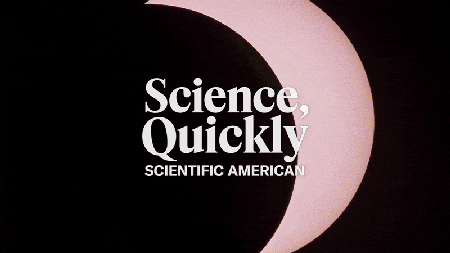
A Veteran Eclipse Chaser Explains the Thrill of Totality
Kate Russo has seen 13 total solar eclipses, and even she isn't ready for this one.
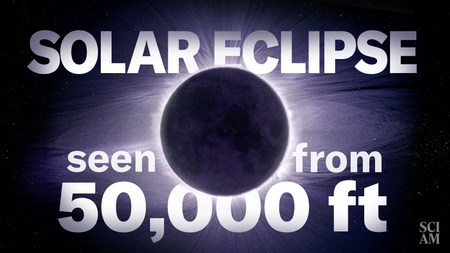
These Cold War–Era Jets Will Chase the Eclipse to Uncover the Sun’s Mysteries
A team of researchers has an ambitious plan to capture the 2024 total solar eclipse like never before.
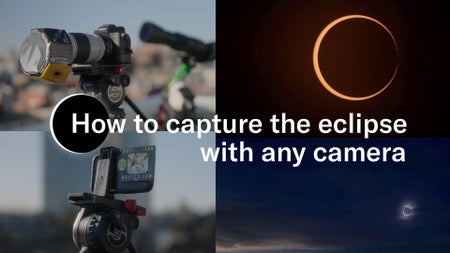
How to Photograph a Total Solar Eclipse with Any Camera
We asked a professional astro photographer and eclipse chaser how to take the best photographs and videos of a total solar eclipse.
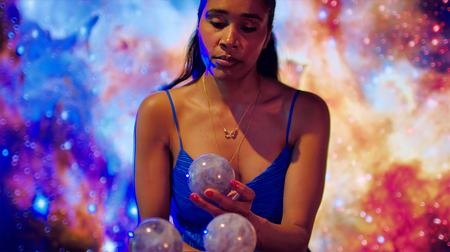
This Astrophysicist Makes Stellar Nurseries That Fit in the Palm of Your Hand
How artist and astrophysicist Nia Imara makes 3-D prints of the birth of stars
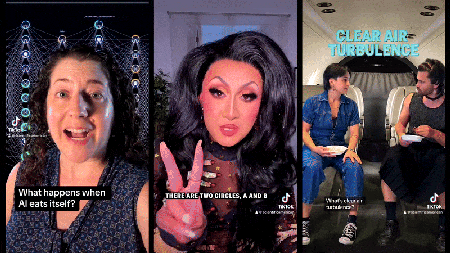
Watch the Best Scientific American TikToks of 2023
Scientific American’s TikTok delivers piping-hot science in bite-sized videos

Podcasts of the Year: Talking to Animals with Artificial Intelligence
Advanced sensors and artificial intelligence could have us at the brink of interspecies communication